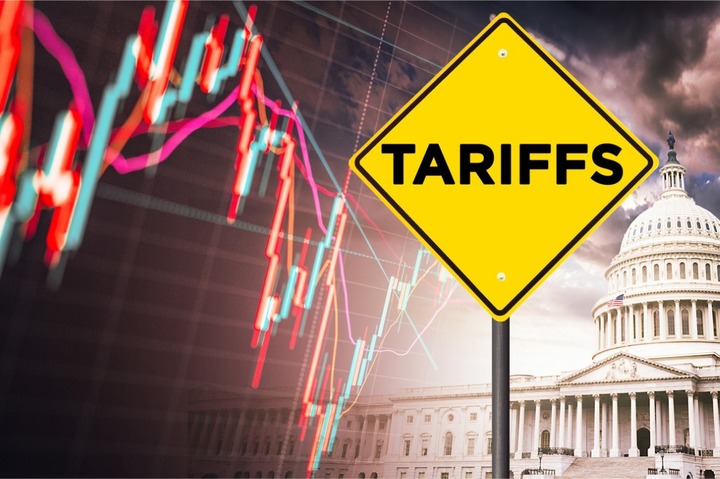Impact of Tariffs and Economic Uncertainty on the Real Estate Market
On April 2, President Donald Trump declared a national emergency regarding the state of the U.S. economy and trade relationships. In a formal Executive Order, he referenced “a lack of reciprocity” as posing an extraordinary threat to national security and economic stability, particularly emphasizing issues arising from foreign economic policies and structural trade imbalances.
The Rise of Tariffs and Economic Impact
This declaration ushered in widespread awareness and discussions about tariffs, which subsequently caused global market turbulence and uncertainty across various economic sectors, including real estate.
As the housing market appeared to stabilize post-recession, new challenges emerged. The shifting landscape, particularly due to Trump’s fluctuating tariff policies, led to heightened concerns among prospective home buyers and real estate professionals alike.
Reactions from Real Estate Professionals
According to Robert Elson, a New York City real estate agent at Coldwell Banker Warburg, the current environment has instilled caution among buyers. “What I’m hearing from clients is basically, ‘let’s cool it until this gets sorted out,’ and that’s not good for the market,” he noted.
Jacob Wood, also from Warburg, expanded on this sentiment, stating, “Uncertainty is always unhelpful, and our real estate market is no exception.” He highlighted that potential buyers might postpone decisions, fearing a decrease in property prices over the coming months.
Challenges for Renovation Projects
The implications of tariffs extend to the cost of building materials, significantly affecting renovation projects. Gerard Splendore, another broker, forecasted increased prices for construction, dissuading potential buyers from pursuing fixer-upper properties.
Opportunities Amidst Market Disruption
Pam Rosser Thistle, an agent with Berkshire Hathaway HomeServices, acknowledged the complexities of the current market but pointed to opportunities for wise investors. “The current economic situation has calmed the pace of the market, allowing buyers to take their time and make more informed decisions,” she added. Buyers are now navigating the market with a focus on necessity rather than desire.
The Mortgage Rate Landscape
Mortgage rates have also experienced fluctuations in relation to the evolving economic conditions. Rates recently surpassed 7%, complicating the home-buying process. Melissa Cohn, regional vice president at William Raveis Mortgage, noted that any emergency interest rate cuts could exacerbate inflation issues, further complicating the financial landscape.
Insights from Industry Experts
To gain additional perspectives, RISMedia consulted various industry stakeholders, such as Alyssa Soto from Powered by DMT, Ivan Sher of IS Luxury, and Anthony Barillo from The Beverly Hills Estates.
Concerns Regarding the Tariffs
Alyssa Soto revealed that both buyers and sellers are increasingly inquiring about tariffs, highlighting worries about rising construction costs. She remarked, “Buyers are especially concerned about how price increases might affect new construction timelines and costs.”
Conversely, Ivan Sher conveyed a more optimistic viewpoint from wealthier buyers, stating they view the current situation as a temporary challenge that could yield long-term benefits.
Advice for Buyers
Soto suggested that buyers should base their decisions on personal circumstances rather than trying to predict the market’s reaction to policy changes. “I emphasize that while tariffs may increase certain costs, other factors also influence the housing market,” she explained.
Anthony Barillo emphasized a dual approach to buyer concerns, focusing both on market implications and individual financial decisions. He urged clients to remain calm amidst volatility, acknowledging that while immediate impacts are felt, long-term growth patterns remain consistent.
Broader Economic Perspectives
The current economic environment reflects significant complexity. Varying interest rate predictions contribute to market volatility, as buyers grapple with planning purchases amidst uncertainty. Soto noted that buyers are displaying hesitancy, which, while localized, disrupts broader market dynamics.
Future of the Housing Market
While immediate challenges persist, some experts anticipate that tariffs may eventually stimulate domestic production, potentially stabilizing supply chains over time. Soto remarked that heightened urgency among hesitant buyers could clarify market demand as economic conditions evolve.
In summary, while tariffs currently exert pressure on the real estate and construction markets, the future remains uncertain. As buyer sentiment adjusts and economic conditions evolve, real estate may yet find new pathways towards stability and growth.

